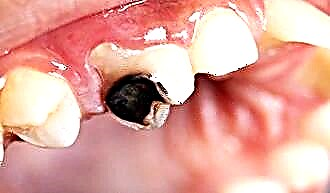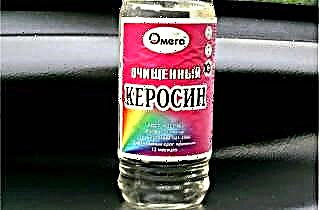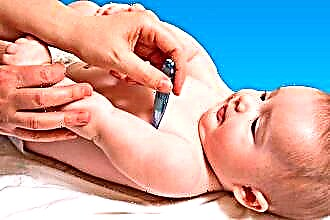 Laryngitis can be caused by infection and a non-infectious factor. Among pathogenic microorganisms, it is often detected:
Laryngitis can be caused by infection and a non-infectious factor. Among pathogenic microorganisms, it is often detected:
- viral infection (measles, flu, chickenpox, adenovirus);
- bacteria (streptococci, staphylococci, pneumococci);
- fungi (candida, mold).
Infection occurs against a background of reduced immunity. Poor nutrition, polluted air, frequent hypothermia, severe infections, diabetes, hypothyroidism, autoimmune diseases, a tendency to allergies and communication with sick people predispose to infection.
Especially often, hoarseness in children appears after a loud, prolonged cry or hysteria. Secondhand smoke also increases the risk of inflammation in the oropharynx and larynx.
Depending on the strength of the provoking factor and the resistance of the immune defense, laryngitis manifests itself in varying degrees of severity. A dangerous condition is croup, which predisposes:
- narrower lumen of the larynx;
- loose fiber;
- more sensitive nerve endings;
- features of the lymphatic system, a tendency to allergies, diathesis;
- frequent colds.
Clinical symptoms and diagnosis
To suspect laryngitis in a child, it is enough to pay attention to his behavior. Initially, moodiness, tearfulness, drowsiness, increased sweating appear, and appetite decreases. Then there is a tickling in the oropharynx, hoarseness, shortness of breath and "barking" cough. In addition, rhinitis and nasal congestion can join, which makes nasal breathing difficult.
If you start treating the disease at the initial stage, the cough quickly turns into a productive form, the excretion of sputum is facilitated and shortness of breath decreases. The temperature can then remain normal.
The progression of pathology leads to aphonia, soundless cough, febrile fever, increased shortness of breath and the appearance of coughing fits (more often at night).
In the absence of therapy, laryngospasm may begin. It is caused by increasing tissue edema and narrowing of the lumen of the larynx. As the croup progresses, breathing becomes difficult, noisy, the skin turns blue and the work of the heart is disrupted.
 Insufficient oxygen supply leads to the development of brain hypoxia, which is manifested by dizziness and confusion.
Insufficient oxygen supply leads to the development of brain hypoxia, which is manifested by dizziness and confusion.
Treatment
How to treat onset laryngitis in children? If the cause of laryngitis is established in time, you can prevent its progression and avoid complications. Therapeutic measures are aimed at:
- prevention of the spread of inflammation, which allows you to limit the pathological focus;
- reduction of swelling and hyperemia of the mucous membrane;
- decrease in receptor irritation;
- relief of breathing;
- decrease in cough;
- prevention of laryngospasm.
Compliance with the recommendations allows you to enhance the therapeutic effect of medications:
- bed rest. It is forbidden to run, walk on the street, which can aggravate the course of the disease;
- limiting the load on the vocal cords. Of course, it is almost impossible to make a child silent, but controlling the volume of the conversation and its duration is the task of the parents;
- maintaining optimal temperature and humidity in the children's room;
- regular cleaning of the room allows you to humidify the air, make breathing easier and reduce the number of allergens;
- plentiful warm drink. Alkaline liquids (milk with soda or Borjomi still mineral water 1: 1), warm compotes, fruit drinks or tea are recommended. Sweet drinks are not recommended. A sufficient drinking regime makes it possible to accelerate the elimination of toxins and reduce the severity of intoxication;
- food should be vitamin. Hot, cold food, spicy, salty and fatty foods are prohibited;
Drug therapy
To cure laryngitis, you must strictly follow the doctor's prescription, especially the dosage and duration of medication. If you stop taking medications yourself, there is a risk of symptoms returning with greater intensity, or chronic inflammation.
 The attending physician may prescribe antihistamines that reduce the swelling of the mucous membrane, and also have a slight sedative effect:
The attending physician may prescribe antihistamines that reduce the swelling of the mucous membrane, and also have a slight sedative effect:
- Fenistil in the form of a solution, dosed in drops;
- Zirtek - from six months;
- Zodak in the form of a solution is used from the age of one, tablets are allowed from the age of six;
- Tsetrin - from a year (syrup), from six years - tablets;
- Claritin - from two years old.
Antitussive or expectorant drugs are prescribed to relieve breathing, reduce respiratory distress, and provide restful sleep for the child. For this purpose, Gerbion (plantain), Sinekod, Libeksin, Bronholitin, Stopusin, Tusuprex or Codelac can be used.
If you suffer from a wet cough with hard-to-separate sputum, it is advisable to use Erespal, Pertussin, Prospan, Gedelix, Alteika, Herbion (primrose), Ambroxol or Acetylcysteine.
The following medications are used for topical treatment:
- Furacilin, Chlorhexidine, Chlorophyllipt, Givalex or Tantum Verde for rinsing the oropharynx;
Gargling is prohibited until 4 years of age due to the risk of developing bronchospasm.
- irrigation of the mucous throat with Bioparox, Orasept or Tantum Verde. The procedure is prohibited for young children, as there is a risk of laryngospasm;
- resorption of lozenges - Strepsils, Decatilen, Faringosept, Falimint or Lisobakt. If the child does not know how to dissolve the pill, you can grind it into powder and sprinkle it on the mucous membrane of the cheeks little by little.
Rinsing should be carried out in compliance with the rules:
- the solution must be warm to avoid irritation and burns of the mucous membrane;
- the procedure is carried out an hour after eating;
- after rinsing, do not drink or eat for half an hour;
- during the day it is necessary to alternate medicinal solutions;
- herbal solutions are used with caution if the child has an increased tendency to allergies.
Antipyretic drugs without acetylsalicylic acid should be used to combat fever. Doctors advise using Panadol, Efferalgan, Tsefekon or Paracetamol syrup. All these medicines are composed of paracetamol, therefore, they are allowed for children. You can also prescribe Ibufen, which belongs to the group of anti-inflammatory nonsteroidal drugs.
Antibacterial and antiviral drugs are used only when the infectious nature of the disease is confirmed.
Physiotherapy procedures
 How to treat laryngitis in children with inhalation? They have a good effect and can even be used by babies. To facilitate the procedure, you can use a nebulizer. It has many benefits:
How to treat laryngitis in children with inhalation? They have a good effect and can even be used by babies. To facilitate the procedure, you can use a nebulizer. It has many benefits:
- temperature control, because hot steam can burn the mucous membrane and slow down the healing process;
- clear dosing of drugs, which is especially important in the treatment of children;
- ease of inhalation;
- no need to synchronize breathing with the operation of the apparatus.
The procedure has some peculiarities:
- it is carried out an hour after eating;
- after inhalation, you should not go out into the cold, eat or drink for half an hour;
- it is not performed with fever above 37.5 degrees;
- during inhalation, it is forbidden to talk, you must breathe calmly;
- using a nebulizer, you cannot inhale oil and herbal solutions;
- after the procedure, the device should be thoroughly washed to prevent contamination;
- for the device, it is allowed to use only saline solution, which should be diluted with the medicine to obtain a certain concentration.
The medicine for inhalation is selected taking into account the allergic predisposition and the severity of the disease.
With the help of a nebulizer, inhalation can be carried out with Interferon (antiviral agent), Borjomi still mineral water, saline, Lazolvan, Rotokan, Sinupret and Tonsilgon. Inhalation allows you to moisturize the mucous membrane, reduce its irritation, facilitate the coughing up of sputum by dissolving sputum, and also reduce the severity of inflammation and swelling of the mucous membrane.
If several types of inhalations are prescribed, it is necessary to follow the sequence of using the drugs, depending on their action:
- the first is inhaled a bronchodilator, for example, Ventolin or Berodual. It allows you to eliminate bronchospasm and facilitate the excretion of sputum;
- then an expectorant is used, for example, Lazolvan or Fluimucil;
- the latter can be used anti-inflammatory (Rotokan, Sinupret) or antiseptic agents (Fluimucil antibiotic, Dekasan).
Inhalation in the usual way (over a saucepan) can be carried out with a decoction of calendula, coltsfoot, pine buds, chamomile and sage. You can also add a couple of drops of essential oil (tea tree, eucalyptus, cedar). Alkaline inhalation can be prepared by adding 5 g of baking soda to boiled potatoes.
Inhalation with Pulmicort is carried out with the threat of laryngospasm, as well as with its development. This hormonal medicine can quickly reduce tissue swelling and make breathing easier.
For chronic course, electrophoresis, ultraviolet exposure, UHF and microwave therapy are recommended.
In the absence of fever, warm foot baths can be used to rush blood to the legs and reduce swelling of the vocal cords and laryngeal mucosa. Rubbing the chest with animal fat or Dr. Mom's medicine. The procedure is performed for bronchitis, which develops as a complication of laryngitis. At risk of cereal, rubbing is prohibited.
Having overcome the disease, you should start strengthening the immune system. To do this, you can use homeopathic medicines, vitamins Multitabs, Supradin and non-pharmacological agents. Water treatments, proper nutrition and climate change are especially useful for children.



